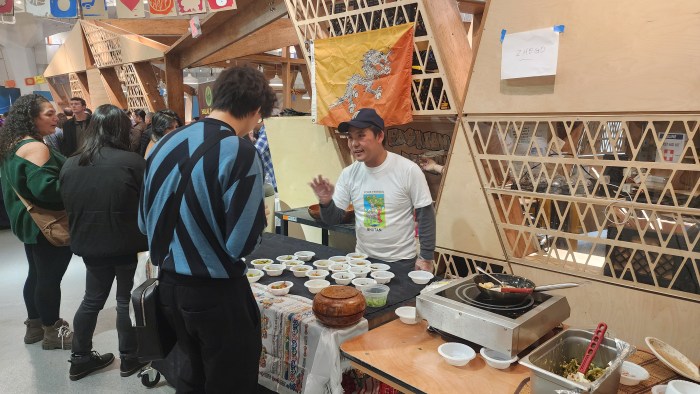If you are interested in helping the environment as well as buying some fresh produce, three Farmers Markets that feature products from local farmers are opening throughout Queens.
The newest market, the New York Hall of Science Farmers Market, located on 111th Street and 48th Avenue off Corona Avenue will open from 10 a.m. to 4 p.m. on Sunday, July 8 and will continue to be open every Sunday until November 18.
The Queens Botanical Market located in the Queens Botanical Parking Lot off College Point Boulevard in Flushing has been open for the past two summers. That market will begin again on Friday, July 6 and open every Friday from 8:30 a.m. to 4 p.m. until November 9.
The oldest market, Jamaica's Farmers Market, has been sponsored since 1974 by the Greater Jamaica Development Corporation. It has been on 160th Street off Jamaica Avenue for the past seven years. It will open on Friday, July 6 from 8:30 a.m. to 4 p.m. and will then run every Friday and Saturday until November 17.
There will be an array of farmers' goods throughout the three markets, as well as the 12 other markets in the state.
Alex's Tomato Farm from Carlisle, New York will be at all three markets. They will sell melons, corn, strawberries, cucumbers, okra, apples and peaches.
The Migliorelli Farm from Tivoli, New York will be at the Queens Botanical Garden market and they will have beets, Japanese turnips, broccoli rabe, bok choy, peaches, tomatoes, mesculin salad, apples and cider for sale. These are just some of the products featured.
Miriam Haas, director and founder of Community Markets, said although she does not know the exact prices because the farmers set them, it has a lot to do with production and the prices might be a little higher than usual because of gasoline prices and the cost of transportation.
However, Haas said that shoppers would still find good prices, a wide range of products and very fresh produce because it comes directly from the farms.
Because the food is locally grown, it takes less fuel to transport the product than it would for chain supermarkets. Therefore, Community Markets feels that buying and selling these products help combat global warming.
“When I started this there were different issues,” said Haas. “I was doing it for community development. Now, I think people are interested in supporting local farmers, they appreciate the produce, they are becoming educated and on the newest level, if you buy produce that's so far away you are contributing to global warming.”



































